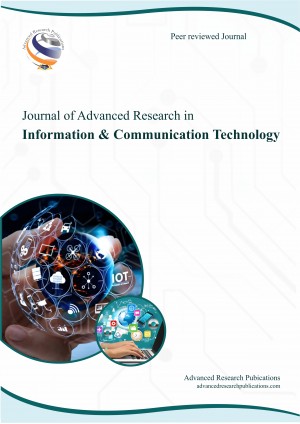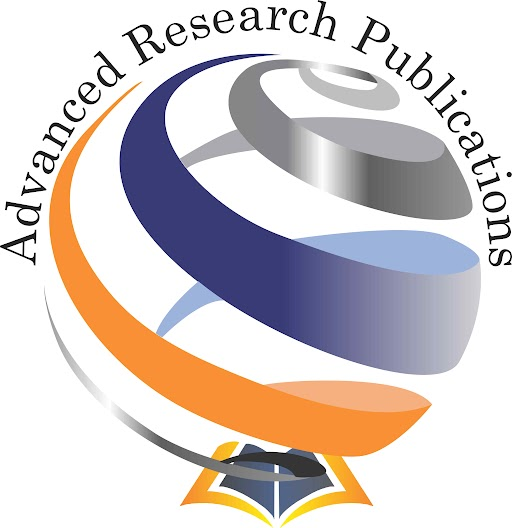Journal of Advanced Research in Information & Communication Technology

Bibliographic Information
| Publishing Year: | 2025 |
| Origin: | India |
| Language: | English |
About the journal
The Journal of Advanced Research in Information & Communication Technology is committed to advancing the frontiers of research in ICT, encompassing a wide array of topics from the latest innovations in communication systems to breakthroughs in computing and data analytics. As the global demand for faster, more efficient, and secure communication technologies continues to rise, this journal serves as a key platform for sharing pioneering research and developments that shape the future of ICT.
Future Directions and Scope:
Next-Generation Communication Networks:
- The journal will explore the evolution of communication networks, with a particular focus on 5G and beyond (6G) technologies. Research will cover advancements in mobile communication, massive MIMO (Multiple Input Multiple Output), beamforming, network slicing, and ultra-low latency networks.
- Future articles will highlight the integration of AI and machine learning in optimizing network performance, enabling autonomous networks, and ensuring seamless connectivity for applications such as autonomous vehicles, smart cities, and IoT devices.
Internet of Things (IoT) and Smart Systems:
- IoT is expected to play a major role in shaping the future of ICT, especially as the number of connected devices grows exponentially. The journal will focus on innovations in IoT architecture, protocols, security, and applications, ranging from smart homes to industrial IoT (IIoT).
- Research on IoT’s role in enabling smart cities, environmental monitoring, healthcare systems, and agriculture will be covered, with an emphasis on data integration and real-time decision-making.
Artificial Intelligence and Machine Learning in ICT:
- AI and machine learning will continue to be key drivers of innovation in ICT. The journal will explore how AI/ML is applied to enhance network management, predictive analytics, data processing, and natural language processing (NLP).
- Future topics will include AI for autonomous systems, AI-driven cybersecurity, and machine learning techniques for optimizing data storage and communication protocols.
Cybersecurity and Privacy in the Digital Era:
- As ICT systems become increasingly interconnected, cybersecurity remains a critical challenge. The journal will focus on new methods for securing communication networks, preventing data breaches, and ensuring user privacy.
- Future research will address emerging threats such as quantum computing’s impact on cryptography, blockchain for secure communication, and advanced encryption techniques for data protection.
Cloud Computing, Edge, and Fog Computing:
- With the continued rise of data generation and demand for scalable resources, cloud computing will remain a vital part of ICT research. The journal will cover advancements in cloud infrastructure, cloud-native architectures, and virtualization technologies.
- In addition to cloud computing, edge and fog computing will gain prominence as the need for low-latency, real-time processing increases, particularly in applications such as autonomous vehicles, healthcare, and IoT.
Quantum Computing and Communications:
- The journal will explore the emerging field of quantum computing and its potential to revolutionize information processing and communication systems. Topics include quantum algorithms, quantum cryptography, quantum key distribution (QKD), and the development of quantum communication networks.
- As quantum technologies evolve, the journal will cover the intersection of quantum computing with classical computing systems, hybrid quantum-classical systems, and the impact of quantum communication on secure data transfer.
Big Data and Data Analytics in ICT:
- The role of big data and data analytics in transforming industries will continue to be a focus. Research will cover data processing, analysis, and visualization techniques for handling large datasets in real-time.
- Topics will include the use of big data in optimizing network traffic, predictive analytics for communication systems, and data-driven decision-making in sectors like healthcare, finance, and manufacturing.
Blockchain and Distributed Ledger Technologies:
- The journal will continue to explore the applications of blockchain and distributed ledger technologies (DLT) in ICT. Blockchain’s role in secure communication, decentralized applications (dApps), and trustless systems will be emphasized.
- Future research will explore blockchain’s potential for secure IoT networks, digital identity management, and its integration with AI for decentralized decision-making.
5G and Beyond – Advancements in Wireless Communication:
- The journal will continue to cover the advancements in wireless communication technologies, including 5G and the development of 6G systems. Research will focus on the enabling technologies of 5G, such as small cells, mmWave (millimeter-wave) communications, and low Earth orbit satellites.
- The journal will also cover the development of ultra-reliable low-latency communications (URLLC) and massive machine-type communications (mMTC), which are critical for applications like industrial automation, autonomous transportation, and remote healthcare.
Human-Computer Interaction (HCI) and User Experience:
- As ICT technologies evolve, the journal will explore research on human-computer interaction (HCI) and the user experience (UX). This includes advancements in user interfaces, augmented reality (AR), virtual reality (VR), and wearable technologies.
- Future research will address the role of HCI in the development of accessible ICT systems, human-centric design for AI-powered applications, and immersive technologies for education, entertainment, and professional training.
Sustainability and Green ICT:
- With a growing emphasis on sustainability, the journal will explore innovations in green ICT, focusing on energy-efficient systems, eco-friendly technologies, and solutions that minimize the environmental footprint of ICT infrastructure.
- Research on sustainable ICT practices, such as low-power communication systems, energy harvesting, and smart grids, will be covered, along with the development of environmentally conscious technologies.
ICT for Social Good:
- The journal will highlight the role of ICT in addressing global challenges, including disaster management, public health, and education. Research will explore how ICT can be used to improve quality of life, reduce poverty, and bridge digital divides in underserved communities.
- Topics such as ICT for healthcare, telemedicine, e-learning, and emergency response systems will be a focus, with an emphasis on inclusivity and accessibility.

